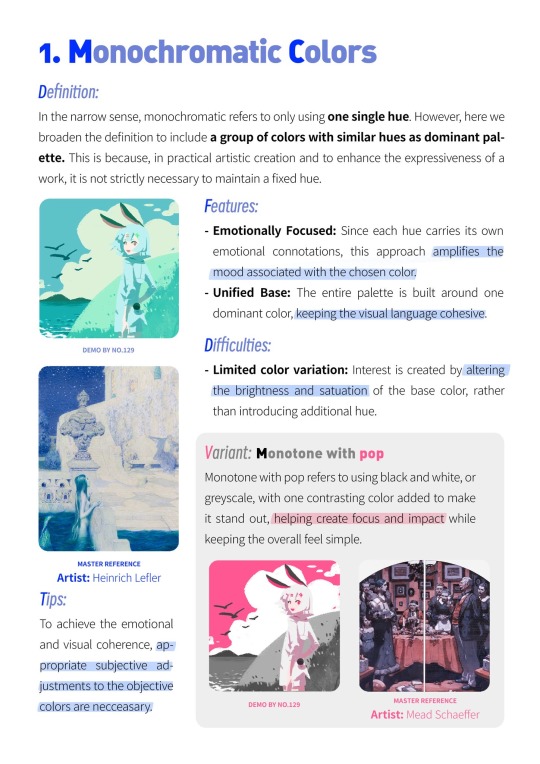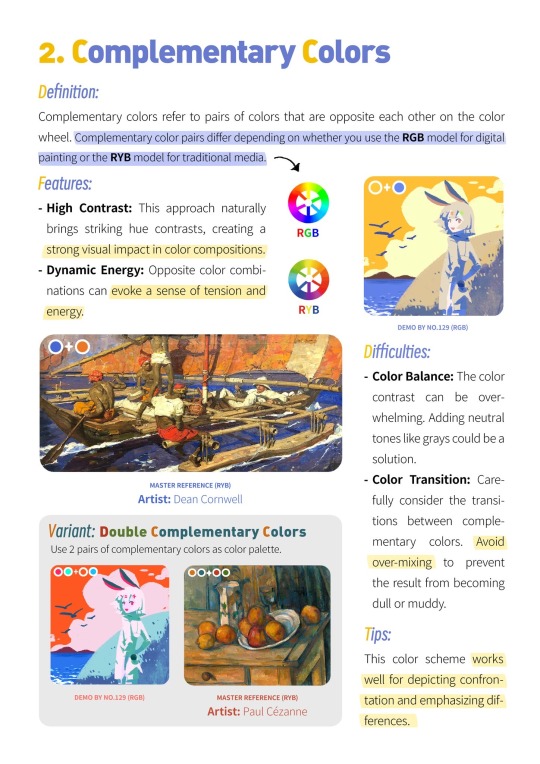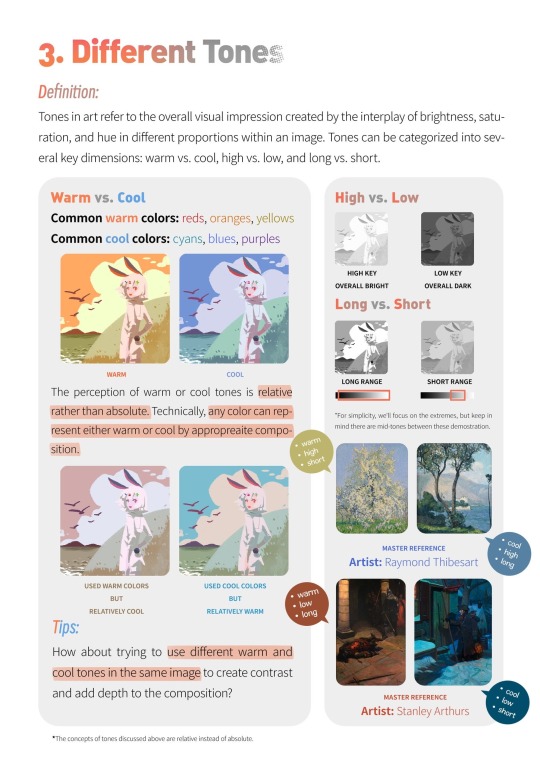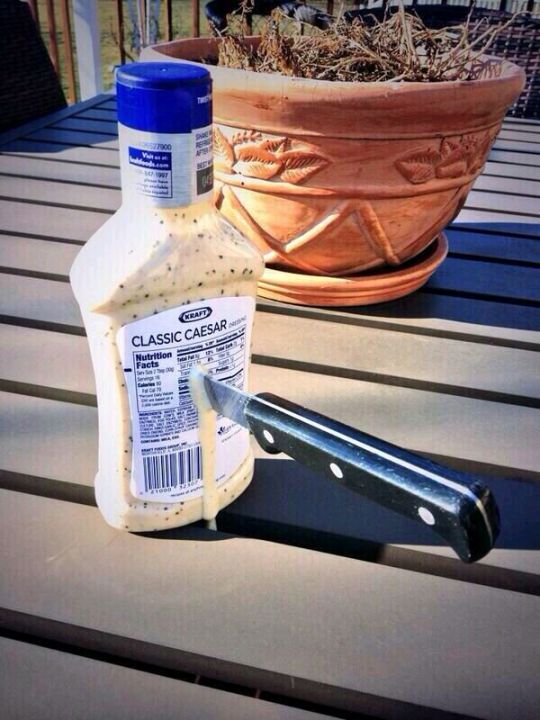I believe in personal freedoms and rights, including the freedom to decide ones identity, the freedom to fight for a liveable planet, and the right to make decisions for ones own body. TERFs, bigots, and other such scum aren't welcome here. he/him, 30-ish (I'm not updating this every year) avatar by Igor Piwowarczyk
Don't wanna be here? Send us removal request.
Photo
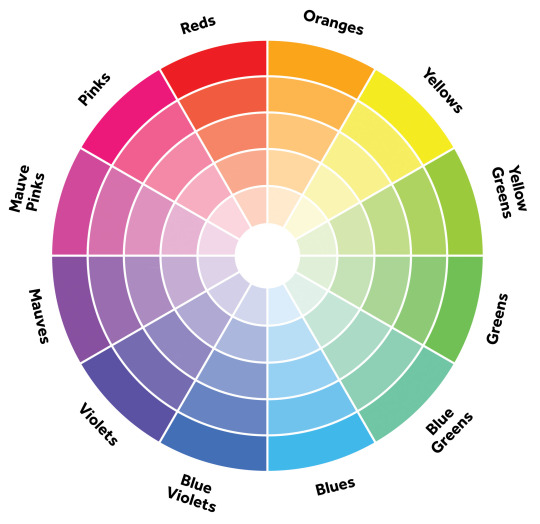
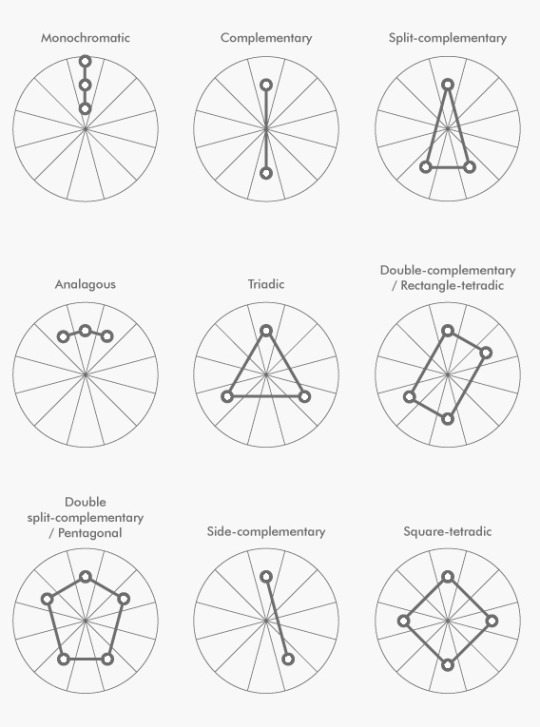
A simple guide to picking a great color palette. No matter what the colors are, using colors that are certain distances from each other on the color wheel result in a great contrast of colors. The simple color schemes shown above are used in the most popular logos, posters, websites, paintings, and even movies and television.
271K notes
·
View notes
Text
66K notes
·
View notes
Text

just wanted to share the National Down Syndrome Society’s message for this year’s World Down Syndrome Day (21st March) 💛💙
79K notes
·
View notes
Text
Good Bones
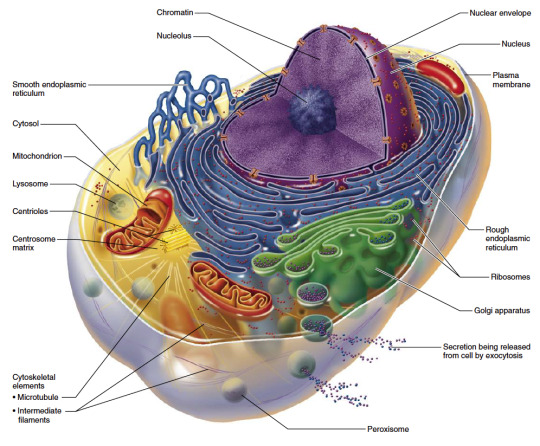
The first thing you must understand is that God is a body.
You creep within him like microbes. Like mitochondria. Life within life, growing inward in a fractal pattern, you mirror the body that contains you. And like the dense little nucleus coils of information you are, you build cell walls to contain yourselves. Your houses stand, gods in their own right, and shelter the organisms that move through them and give them life. Life within life, bodies within bodies. Which makes God a kind of house. And if he loves us, he loves us in the way you love your gut bacteria. Does God eat probiotic yogurt? I think you must hope that he does, this infinite titan we inhabit. I think you must hope that he takes very good care of himself. And if we hope, we self-aware nuclei, we houses, we gods teeming with universes of infinitesimal life, does the life within us hope? Does God? Does a house?

Margaret considered herself a healer of houses. There were many who did what she did, buying cheap, neglected properties, fixing them up and selling them on. But she was no cheap house flipper, slapping on a new coat of beige paint and calling it a day. She was a physician, taking battered and ailing homes and making them whole again. Restoring original features, replacing cheap materials with sturdy, long lasting hardwood and brick, teasing out the true character in even the most cookie-cutter suburban stucco box. It wasn’t easy money, oftentimes they barely broke even, but it was her first and truest passion.
Then came the house on Oak street.
It was supposed to be an investment, a step forward for them. Between the picturesque location and the impressive square footage, it might bring enough profit to finally build that family home they’d dreamed about. As much satisfaction as Margaret found in turning flop houses into homes, she could not pretend she wouldn't prefer to work on something with a little more substance. Something with good bones. And the house on Oak street had those in spades.
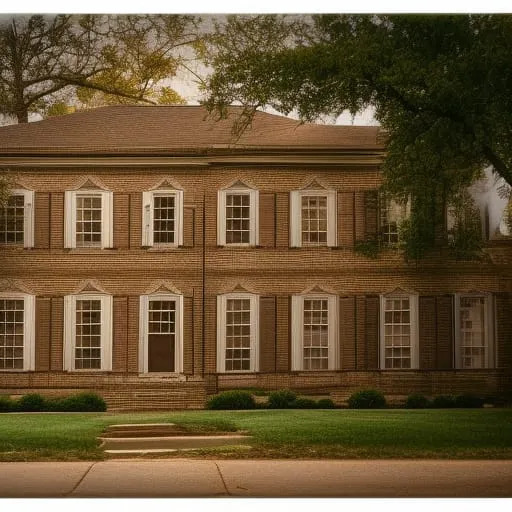
It was a towering brick colonial, symmetrical and severe, with neat rows of multi-paned windows dressed in tidy little dark blue shutters and a great tree for which the street had been named standing sentinel in the yard, green and gold in the fullness of summer. Even with as long as it had sat empty and abandoned, the quality of the original craftsmanship stood firm against the years. Its steep dark roof, set like a furrowed brow above the tall windows, showed no signs of sagging. Her inspections had revealed no major sources of structural damage. And yet, she thought, as she stood before it, the dust filmed windows looking back at her like cataract milky eyes, there was an unmistakable something to it. An age. A patience. Somewhere in the lines of its facade she saw, or convinced herself she saw, determination. It was a proud house, and though it had fallen on hard times, it would rise again. And Margaret would be the one to help it rise.
The house had been built in the 1700's, and had for many years been a family home. Generations lived and died in its halls, and it sheltered them well. Then some misfortune had struck the family, Margaret wasn't privy to the details. She couldn't know how the air had soured almost overnight. How the petty family dramas those walls had witnessed previously paled in comparison to the fury and despair that came to inhabit them. What happens to a body whose cells hate and fear one another? Who lash out and wound each other? Who rage and weep?
And then the family was gone, and ownership of the home fell to relatives overseas for some years. And then to the bank for some years more. And eventually into the hands of Margaret, who arrived cheerful and smiling with paint and spackle, ready to heal it. She stepped inside, and the door closed soundly behind her.
Margaret did much of the work herself. It saved on expenses, ensured the work was of the quality she expected, and she enjoyed it, laborious as it often was. Some things required a trusted second set of hands or a call to an outside contractor, but she was proud that most of the work had been done personally. She was often alone, just her and the house, as she stripped old wallpaper and tore out moldy wood and cut away mildewed carpet.
Remodeling is an interesting word. To shape again. We use it to describe gutting a house and refitting it with new features. And also to describe the way bones change their shape after injury. Though the wound is gone, evidence of its presence remains.

Margaret sometimes spoke to the houses she worked on. She was just talking out loud to herself really, but pretending the house could hear her made the work less lonely.
"There you go," she'd say as she braced a rotting beam and prepared to cut it out and replace it. "That must feel better." And sometimes she fancied she could feel the houses responding. She imagined their gratitude and their relief. For some reason, when she tried to imagine the house on Oak street feeling grateful or relieved, the thought was less than convincing.
She found she didn't like staying there after sun set, though she did so more and more often lately. She found nightmares troubled her more often than she was used to. Nightmares in which she stood in the house on Oak street while acid boiled up from the floorboards and teeth pushed through the crown molding and the rug grew soft and wet as a tongue and hurled her down a hallway as black and deep as a throat.
Many of the symptoms we attribute to haunted houses are in truth symptoms of an ailing body. Un-level floors caused by sinking foundations create feelings of vertigo and unease. Poorly sealed windows and gaps in the baseboards lead to drafts, causing cold spots and doors that open or slam shut on their own. Aging faulty plumbing announces itself by strange knocking in the night. Gas leaks and unshielded electrical wiring manifest visions, shadows lurking in the corners of our eyes, not threatening but desperately warning- Something is wrong. Hauntings are an immune response.

Margret knew this, and when she felt cold spots in the house on Oak street, she held out her hand for her level and measuring tape, only to find the cold spot had moved in the moment it had taken her to grab them. She measured dutifully anyway, took careful notes.
"Probably the windows," she told the house. "Frames are warped."
It would be tragic to remove the original windows, and she hoped she could find a way to preserve them, but it might be better in the end to replace them entirely with more energy efficient models, if this was to be a functioning, lived in home and not a historical preservation piece.
That night she dreamed she was running through the house, running from something. Every time she tried to shut a door between her and what pursued her, the door grew flimsier. At first it simply would not lock or close, and then it was not a good solid oak door at all but thin hollow-cored MDF. Then it was a half-screen porch door. Then all screen. Then an absurd half door. And then she would give up and flee to the next room, the next door to hide behind. All the while the unknown thing pursuing her grew closer.
The Ship of Theseus is an ancient thought experiment, in which a ship, over many years of regular maintenance, is slowly replaced one piece at a time, until no single piece original to the ship remains. What is a ship but a house at sea? How much of a house must you replace before it ceases to be what it was, and becomes something new? How many organs can you transplant, how many limbs can you sever and stitch back into place, before the body that laid down under your knife is no longer the body that rises after it?
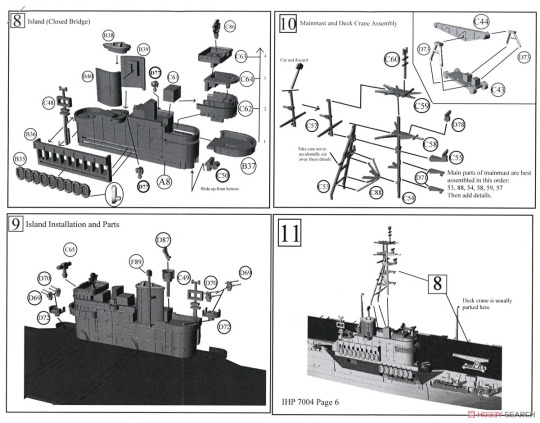
During the time the house lay in legal limbo, it did still have inhabitants. No house is ever really without them. In the absence of the family, there were rodents. And insects. And vagrants. And angry, destructive children. Margaret found evidence of fires, and crude words in spray paint across the living room walls. To her dismay, even months after beginning this project, she was still finding such evidence. It was a large house, with doors that stuck and whose keys had been lost for decades. It wasn't really surprising to discover rooms she had not even touched yet. She did tend to get very caught up in her work and miss things. She cleaned these rooms too, patting the wall in reassurance.
"Don't worry," she told the house. "We'll get it all fixed up."
That night, she dreamed she was laying on the hallway floor, and the floor rippled beneath her, moving her slowly forwards, headfirst down the hall. Rats and roaches paced beside her like a funeral procession. Her foot snagged on an exposed carpet nail, and she watched it unravel like a knit sweater, her flesh uncoiling, spilling slowly out behind her like spaghetti. It climbed up her body, her calf, her thigh. She felt the wet bag of her torso split and her contents gush and flop out behind her. Still the house dragged her onwards.
Theseus was a hero, who founded Athens and rescued children on a ship that would one day become a paradox. Once, he walked into a maze carrying a skein of thread, which unspooled behind him to mark his way back. At the heart of this maze was a monster.
"I think I need a break," Margaret told the house, dropping her wallpaper scraping tool and leaning her head against the wall, back aching. "No offense, but you're a lot of work."
She looked towards the window, reminding herself she still needed to call about having those replaced, and saw the oak tree outside, its branches bare against a gray, overcast sky, studded with small green buds. She had been so sure she'd be done with this before Christmas.
She stood, and stretched, and opened a door, which stuck and shuddered as she pulled on it. Inside was another wall full of graffiti, and the smell of mildew rolled out like a flag unfurling. Margret groaned and took the scraping tool as it was offered to her.
Your bodies depend on microbial life you gather from the world around you. Some of your mitochondria are not grown within you, but moved into you while you were in utero, inherited from your mother. You contain these refugees from another body, another god, the first house to hold you. When life on this planet was single celled, a bacteria with the ability to release energy from oxygen found its way inside another cell. Eaten, or burrowed in on its own, it carved out a place for itself inside. The cell sheltered the bacteria, and the bacteria fed the cell. And from that union rose all eukaryotic life on earth. How do you feed God? How do you feed your houses?

It's a mistake to think of the maze and the monster as two separate things. The monster lives in the maze as your cells live within you, a holobiont. A lichen. What then does that make Theseus? And you must recognize of course that the monster was never the threat. The monster is not why he needed the thread.
Margret dreamed. She dreamed of walking out into a crisp fall morning. She dreamed of setting fires. She dreamed of scraping her skin away like old wallpaper.
Margret felt a cold spot. She reached for her level and her tape measure and her notes. She fumbled, dropping the notebook, and muttered a curse at herself and reached back as it was handed to her. She was getting clumsy. She was going to suggest a long vacation once this house was done. Somewhere warm, where she could lay outside in the grass and see the sky. She felt like she'd been staring at these walls forever. She'd promised Julia-
The name rang like a bell in her thoughts and she dropped the notebook again to grab at the wall for support. Julia. Julia. The name reverberated with such urgency, her heart leapt with every repetition. Why was she here alone? She never worked on the houses alone, Julia worried about her too much. She didn't talk to the houses, why would she? When there was supposed to be someone else there to talk to? Where was Julia?
Who had handed her the notebook?
Margaret stood very still, and listened to the shifting of the house, and the breathing of the person standing behind her.
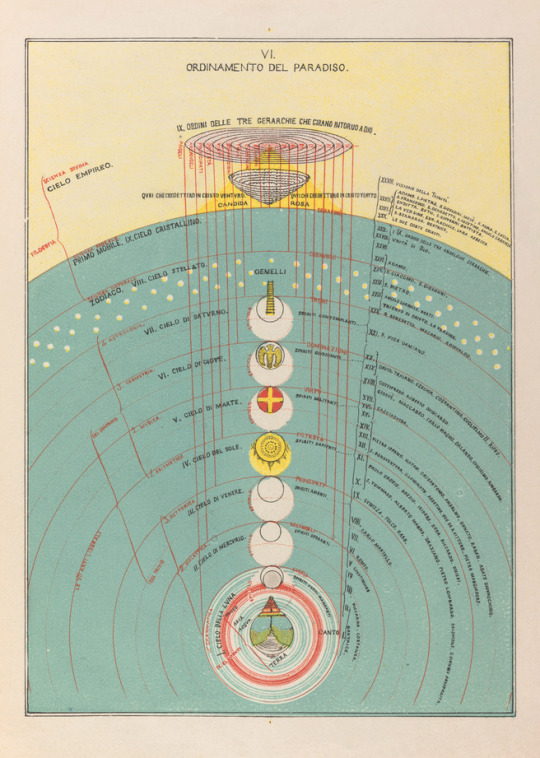
There is another story, not about Theseus. About Orpheus, and his lover Eurydice, who was dead. He went down into the underworld, into a dark maze, to find her. He did not bring thread. The God of the Dead told Orpheus that Eurydice would follow him out of the underworld, but he must never look back at her until they were both in the world of the living. All the long way home, Orpheus walked, and something walked behind him, breathing in the dark.
How many days, how many weeks, had they wandered through this house together? How many rooms had they replaced together before the ship changed? When had she last left the maze, and why had she come back?
She came back for Julia.
She walked. She did not run, she did not scream. She walked through the house, back through the endless rooms, each one so lovingly remodeled. She tried to remember the way out of the maze. She wondered if the footsteps behind her were Eurydice, or the Minotaur.
The maze cannot expel the monster. The ship cannot shed its boards. The cell cannot eject the organelle that feeds it. Why would it want to? Why would God evict you?
Why would you leave the house? Why would you leave me?
The procession of rooms is never ending. Margaret turned to the window, tried to keep her hands from shaking as she clawed at the sash. Outside, the oak tree was covered in snow. The window refused to move, stuck. The frame is warped. She meant to call about having them replaced. She looked out at the oak tree, and in the reflection of the glass, the person behind her shifted.
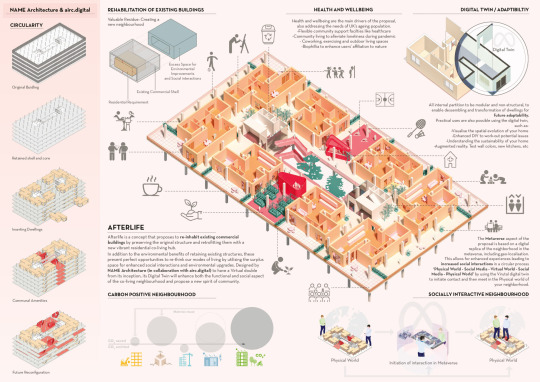
What you must understand is that God is a body. That a house is a body. That a body is a house for other life, and that makes the house God. And what you have to understand is that illness and injury change the body from the inside out, and once the boards of the ship have been replaced you cannot just put them back in again.
It is not. The same. Ship.
It is not. The same. House.
And what you really, really have to understand is that life on this planet began when one life swallowed another, and kept that life living inside it. Life within life. Bodies within bodies. Do you understand?
In the end, Margaret was right.
The house did have good bones.
63 notes
·
View notes
Text
who wants to hear me play piano
#I love it when I follow people for posts that I find incomprehensible#Because sometimes it doesn't matter that I don't have the right background or sense of humor or history or language#to comprehend that they have made something that cuts through that noise#like a radio tuned to the noise between stations sometimes catching just a fragment of something recognisable
62 notes
·
View notes
Text
Hot take but I really do think that some of y’all need to consider how/why/when/how often you’re making fun of straight people for being straight
I do it too, I’m not going to pretend I don’t make jokes about the hets, or the down with cis bus, or whatever
But I recently befriended a cis, straight dude and I have watched him be dismissed, degraded, and unambiguously insulted for the perceived “crime” of being straight — all in queer environments where he is allegedly “completely welcome” and surrounded by “friends”
This guy is not a toxic person! But I have seen him be made to feel so small and like his comfort and safety in those spaces are conditional on his silence and acceptance of being treated like a human dunk zone, and I think that some of y’all have had so much shit from straight/cis people that the second you feel like you’ve got an inch, you want to luxuriate in the perceived catharsis of bullying someone who— actually —doesn’t deserve it
And until he very, very carefully mentioned to me in private that it makes him feel bad, I didn’t even clock that I was involved in doing that, that it had become so instinctive for me to make casual jokes like that, and that— well meaning or otherwise —I had been contributing to an environment that made someone I really really like feel like shit
So, I dunno, I think maybe some of y’all should think about that too
36K notes
·
View notes
Text
i think the scariest exam i ever took was in my Fisheries Management 400 course, the final semester of my degree. our final exam was an essay response to a management prompt. each of us pulled a slip of paper out of a jar at the start of the exam, for a unique fisheries management situation. like a recovery project in a salmon habitat, etc. then we wrote a response as if we were the project manager, detailing how we would manage, execute, and accomplish the project.
so i got my prompt and my heart sank because as i read it, i could only think that what i was assigned to manage was impossible. the prompt explained that a farmer asked me to stock a fishing pond with a specific species & create a self-sustaining population. based on the location and the ecological parameters of this imaginary pond, i knew it would be impossible to accomplish his goal to maintain a self-sustaining population of his target species.
basically, the answer was, "The client's request is not possible [short explanation as to why]" and "I would recommend alternative species, or repeated manual stocking."
In the end, my essay response was 3 sentences long. It took me 5 minutes to think over and write. By the time I wrote down my answer, most of my classmates hadn't even picked up their pencils. They were still thinking over their no doubt far more involved management prompts. We had 2 hours to take the exam.
I sat there having a crisis for 15 minutes until I finally walked to the front and put my notebook down on the professor's desk.
I said, quietly, unsure if he'd give me ANY hints, "surely.....this should be longer?" He raised his eyebrows and said, "Do you trust yourself and what you've learned in this class?" I said, "Uh. I think so?" He said, "Then you'll have to trust it's as long as it's supposed to be."
I decided to think those were encouraging words so I left the class, 15 minutes into a final exam that allowed 2 hours for my response.
Went home and took a Xanax. Got an 100%.
Nobody better ever do that to me EVER again.
7K notes
·
View notes
Text
an imperfect ally is better than a perfect bystander
24K notes
·
View notes
Text
Okay another post made me think of this but
#their soft fuzzy cheeks.#I pet my cat's cheeks and smush em and I'll take a little peek at his teeth and he'll just lay there as I perform origami on his faceparts
5K notes
·
View notes
Text
This movie has defined some of my tastes for nearly two decades now. An absolute ride



867 notes
·
View notes
Text
Literally the most important words ever spoken
23K notes
·
View notes
Text
the emotion i just experienced is kind of indescribable
73K notes
·
View notes
Photo
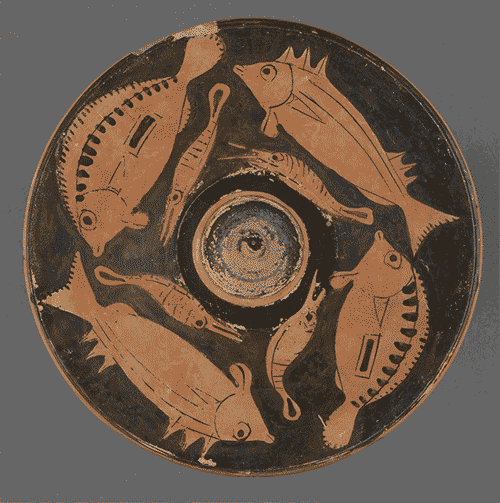
Just keep swimming, swimming, swimming…
3K notes
·
View notes
Text
Gotta reload. Got that smooth bore smirker, and I'm chambering another dazzler
you know when youre smiling and you physically feel your smile go back to neutral isnt that so fucked up. its like. all things are fleeting in this world. but its okay. smile because it happened
10 notes
·
View notes
